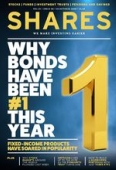Archived article
Please note that tax, investment, pension and ISA rules can change and the information and any views contained in this article may now be inaccurate.
How to turn your dream of early retirement into reality

The FIRE movement sounds nothing like a retirement planning strategy, but it’s a movement where people are saving their cash and retiring young.
Financial Independence, Retire Early (or FIRE) in a nutshell involves maximising your income and reducing your spending while you’re in work in order to be able to retire early – 40 is often the target age.
Fans of the movement say it means you’re not tied to a job and can enjoy time out of work for longer, with small life changes that aren’t too arduous. Critics say that you end up penny-pinching throughout your life in order to retire on a frugal income.
HOW IS IT ACHIEVEABLE?
In order to achieve FIRE people will target saving anywhere between 50% and 75% of their take-home pay each month. By saving this money and investing it (often in low-cost funds) they aim to hit a target savings pot and then be able to retire. The idea is that you’ve got used to more frugal living during your working life, so you’re able to live more frugally in retirement.
Mark Bishop, aged 50, retired seven years ago after deciding that going into the office everyday wasn’t something he wanted to do forever. ‘While I enjoyed some aspects of work I never really liked the obligation to turn up every day and there were many other things I wanted to do with my life,’ he says.
Rather than feeling like he missed out on anything in order to save to retire early, Bishop says he just avoided ‘over-consumption’ or borrowing too much money, particularly if it was just to buy things like the latest car, to ‘appear affluent’.
His only extravagance that he regrets is buying a boat in his early 30s, which he went on to sell for a loss. ‘Also I regret moving home so much when I was younger and not keeping the properties and renting them out. The 1990s were a golden age for property purchase,’ he says.
But Bishop, who is co-founder of the Financial Independence UK Facebook group, insists the FIRE movement isn’t just for bankers and City types, and is achievable for those on a ‘reasonable but unspectacular income’. In short, he says, people can just follow his path, where he ‘maximised income, minimised expenditure, used tax breaks wisely, [and] invested well’.
RETIRING AT 39
Steve Powley, 59, is another person who focused on saving his money to retire early. He previously worked at a software company, but freelanced and saved money so he could ditch working life early. He retired at 39 and now splits his time between the UK and Spain.
‘My epiphany was when I had got off the train at London Waterloo and followed a guy down the platform. He was, I guess, mid-60s, his suit was crumpled and creased, shoes scruffy, and he just looked tired and miserable. I resolved that day not to end up like that,’ he says.
His strategy was a mixture of saving well, not borrowing too much and taking on more lucrative work. ‘I never stretched myself with a mortgage, never bought flash cars, and generally saved prudently. Then I did a few lucrative freelance contracts abroad – not many people have that option so I was fortunate.’
Another key aspect for Powley was to start investing his money. He took the dicey move of risking his £200,000 savings by teaching himself how to invest in shares, in order to boost his savings pot. He admits he was in the fortunate position that if he lost it all he knew he could go back to work and make more money.
However, he doesn’t think FIRE is for everyone: ‘Making enough money in shares isn’t easy at all. It’s worth a try if you fancy it but you need to have skills that would allow you to return to work easily – and I think you’d find it really tough with kids.’
Even if I don’t want to achieve FIRE, what can I learn from it?
Cut back each month: Most people who sit down and look critically at their spending will see areas where they could cut back without it affecting their lifestyle. It’s a good idea every six months or a year to look at where you’re spending money, areas where your spending has gone up, and any easy wins you can make to save money, such as switching energy or internet providers, or moving to a cheaper supermarket.
Think hard before borrowing: Lots of people in the FIRE movement attribute their success to not taking on lots of borrowing, so think before you do. Do you really need that loan to get a new car, or will your current vehicle suffice? Do you need to upsize your house or are you keeping up with the Jones? Even if you decide to go ahead, it’s always good to challenge yourself on these decisions.
Maximise your saving (and investing): While the target of saving 50% or even 75% of your salary each month feels out of reach for many, could you be saving more of your cash? Putting money away on payday can help, as can having a budget (even if you don’t stick to it rigidly each month). Also, if you know the money isn’t going to be used in 10 years or more, think about investing it to get higher returns.
Ditch the rat race (partly): If the part of the FIRE movement that appeals most is doing away with the 9-5 job, can you make that a reality? Could you cut your hours and maintain your standard of living? Or cut your hours to make money from a side-hustle or hobby that you enjoy more (and don’t have to do from behind a desk in the office).
Important information:
These articles are provided by Shares magazine which is published by AJ Bell Media, a part of AJ Bell. Shares is not written by AJ Bell.
Shares is provided for your general information and use and is not a personal recommendation to invest. It is not intended to be relied upon by you in making or not making any investment decisions. The investments referred to in these articles will not be suitable for all investors. If in doubt please seek appropriate independent financial advice.
Investors acting on the information in these articles do so at their own risk and AJ Bell Media and its staff do not accept liability for losses suffered by investors as a result of their investment decisions.

 magazine
magazine









